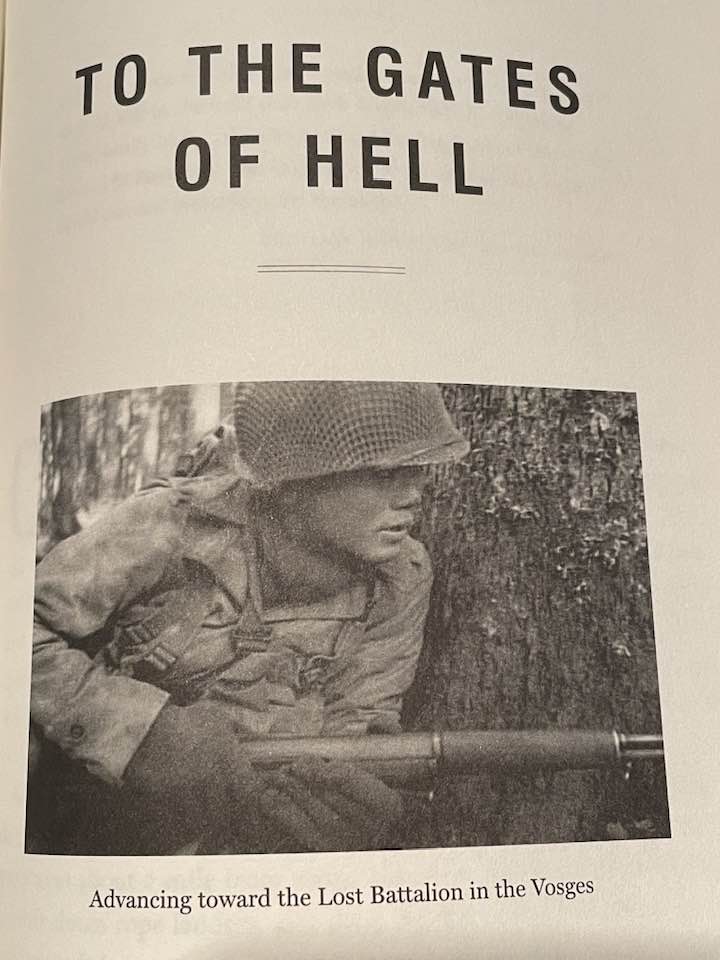JULY 30, 2024 – (Cont.) The most remarkable aspect of racial discrimination against Japanese-Americans is that it didn’t discourage most Nisei (people of Japanese parentage but born in the United States) from joining the war effort. They signed up because they felt it was their duty—as Americans and in defense of American ideals and principles—and also because they wanted to prove their loyalty. What could be more compelling evidence of that loyalty but going to war to defend the United States against the Axis powers—including Japan? Yet the government—which, let’s remember, as a democratically elected entity reflected the will of the governed—would have none of their loyalty . . . or valor. Men of service age were thrown into concentration camps along with their elders. Only later in the war when Uncle Sam needed the manpower—and Eleanor Roosevelt characteristically pressed her husband to honor quintessential American principles—did the government reverse course and allow Nisei to enter the armed forces—albeit in segregated units and subject to a loyalty oath not imposed on other Americans. Eventually, the need for manpower led to conscription of Nisei.
Some, however, refused—out of principle. How could they be coerced to fight for the very country that had summarily denied their rights and privileges as citizens and subjected their families to such harsh treatment? A deep rift developed between those who saw their duty to fight—against the nation’s enemies—and those who felt duty-bound to protest America’s enemies from within, people who out of fear, hatred, ignorance and the basest of prejudice would deny their fellow citizens respect and decency, property and liberty. The resisters became known within the Japanese-American community as the “no-no boys.”
Facing the Mountain forces the modern reader to confront this unseemly chapter of American history ridden with outright racial discrimination. But the author also presents ample evidence that from dark shameful waters, American “greatness” rose to the surface.
The finest example of Japanese-American virtue, not to mention unparalleled valor and loyalty, occurred in the heat of mortal combat against the Wehrmacht up the length of Italy, into France and on to Germany. Based on meticulous research, including extensive interviews, a treasure trove of correspondence and official records, author Daniel Brown provides a nail-biting, stem-winding description of the fierce, unrelenting and blood-soaked efforts of the all-Japanese-American 442nd Regimental Combat Team. For over a year with only brief respites from unimaginable hellfire, these soldiers fought through insufferable conditions against a viciously determined enemy.
If, as General Sherman said, “War is hell,” the 442nd experienced it in its most vengeful form. With super-human courage, determination and all too often, ultimate sacrifice, they met unimaginable odds. Their biggest among many combat achievements was the rescue of the “Lost Battalion.” This outfit, the 141st Infantry Regiment of the Texas Division under the command of a Minnesota native, General John Dahlquist, had been surrounded by the Germans in the Vosges campaign in France.
The Texans’ predicament was the result of Dahlquist’s pig-headedness and willful disregard for intelligence about the enemy’s movements into a tactically superior position. When the general realized his bad judgment could have career-ending consequences, he exercised further bad judgment and utter disregard for the lives of the Nisei. He ordered the 442nd to break through to the Texans—and save his own bacon. It was a suicide mission, and the soldiers knew it. When their commander squarely protested—even to the point of taking Dahlquist forward so the general could see for himself—the general had a conniption. Against all odds the Nisei picked up their weapons and obeyed the crazed leader who wouldn’t know a brick wall if he ran smack into one. The most extraordinary thing about the whole ordeal is that despite staggering losses, the Nisei did the impossible. They broke through German lines and rescued the Texans.
By this point in Facing the Mountain, mind you, the reader has already received a full dose of the despicable treatment of Japanese-Americans by their fellow Americans back home. This knowledge makes the Nisei bravery in American uniform all the more heroic—and their loss of all civil rights and their incarceration on account of race all the more reprehensible. Even more scandalous was the continued nasty treatment of Japanese-Americans—including the highly decorated war heroes of the 442nd even following the wide publicity of their rescue of the Lost Battalion. (Cont.)
Subscribe to this blog and receive notifications of new posts by email.
© 2024 by Eric Nilsson
